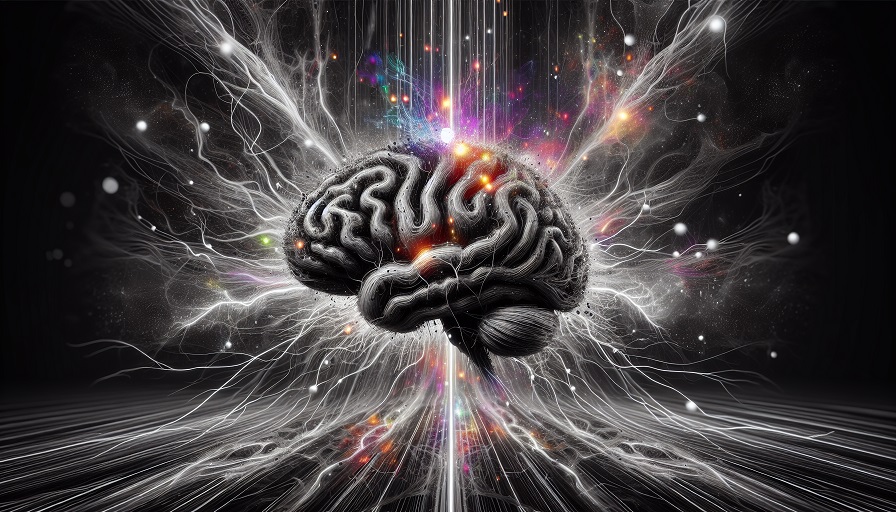
Rhodiola Rosea, L-Theanine, and Phosphatidylserine are among the best nootropics to support emotional resilience. These ingredients help regulate stress hormones, promote calm focus, and protect the brain from emotional overload, allowing for balanced reactions and greater mental composure in challenging situations.
Contents
Why Emotional Resilience Matters
Emotional resilience is the ability to adapt and recover quickly from stress, frustration, or adversity. It determines how well you handle pressure, criticism, setbacks, and uncertainty. Individuals with strong emotional resilience tend to think more clearly under stress, maintain a positive outlook, and recover from negative emotions more rapidly.
Emotional resilience depends on a variety of brain functions – including stress response, neurotransmitter regulation, and prefrontal cortex activity. Nootropics that modulate these systems can help you stay calm, composed, and in control even during high-stakes or emotionally intense moments.
1. Rhodiola Rosea: Master Stress Adaptogen
Rhodiola Rosea is a well-researched adaptogen known for its ability to reduce physical and emotional stress. It works by regulating the hypothalamic-pituitary-adrenal (HPA) axis – the body’s central stress response system – and balancing cortisol levels.
Chronic stress can impair emotional regulation and increase sensitivity to even minor frustrations. Rhodiola helps prevent this by reducing the cortisol spikes that make people reactive, fatigued, or emotionally fragile.
A clinical study published in Phytomedicine (2009) showed that individuals under prolonged stress who supplemented with Rhodiola experienced improvements in mood, reduced fatigue, and increased motivation. Participants reported feeling more balanced and less emotionally overwhelmed during demanding periods.
2. L-Theanine: Calm Without Sedation
L-Theanine promotes a relaxed, focused mental state without causing drowsiness or dullness. It enhances alpha brainwave activity, which is associated with calm alertness – a psychological state often described as “quiet confidence.”
By modulating levels of dopamine, serotonin, and GABA, L-Theanine smooths out emotional highs and lows and helps reduce intrusive or racing thoughts. This makes it ideal for those who struggle with emotional overreactivity or anxiety in response to stress.
A 2019 study in Nutrients found that L-Theanine improved sleep quality, reduced stress-related symptoms, and enhanced mental clarity. These outcomes contribute to emotional resilience by providing better emotional stability and mental restfulness.
3. Phosphatidylserine: Cortisol Control and Brain Protection
Phosphatidylserine is a phospholipid that supports communication between neurons and helps maintain the fluidity of brain cell membranes. It’s also known for its ability to blunt the rise of cortisol in response to acute stress, helping maintain executive function and emotional regulation during intense moments.
A 2004 study published in Stress demonstrated that Phosphatidylserine supplementation lowered cortisol responses in individuals under physical and mental pressure. This helped preserve mood, memory, and task performance, all of which are typically impaired when stress is not properly managed.
By supporting structural brain health and calming the stress response, Phosphatidylserine helps build emotional stability over time – especially valuable for professionals, caregivers, or high-performers frequently operating in high-pressure environments.
Other Nootropics That Support Emotional Resilience
- N-Acetyl L-Tyrosine: Helps replenish dopamine and norepinephrine under stress, improving cognitive flexibility and emotional stability when fatigued or mentally taxed.
- Vitamin B6, B9, and B12: These B-complex vitamins support neurotransmitter synthesis and mood balance, and deficiencies are often linked to increased emotional volatility.
- Lion’s Mane Mushroom: Encourages nerve growth factor (NGF) activity, which may support emotional processing and resilience through neurogenesis in areas of the brain involved in mood regulation.
Emotional Balance Is Trainable – and Biochemically Supported
While emotional intelligence and mindfulness can improve resilience over time, the biochemical foundation must also be in place. A fatigued or dysregulated brain can sabotage even the best intentions. That’s where targeted nootropic supplementation comes in.
Rhodiola Rosea enhances stress resistance and mood regulation. L-Theanine promotes a calm but alert mindset, improving your capacity to respond rationally rather than reactively. Phosphatidylserine helps regulate cortisol and preserves executive function – the cognitive filter that separates thoughtful response from emotional reactivity.
Building a Stronger, Calmer Mind
Emotional resilience is not just a trait – it’s a skill supported by a healthy brain. The right nootropics can help reinforce this capacity by improving your ability to handle stress, recover quickly from emotional upsets, and think clearly under pressure.
Rhodiola Rosea, L-Theanine, and Phosphatidylserine – all featured in Mind Lab Pro – work in concert to stabilize mood, reduce stress reactivity, and strengthen the neurological foundations of emotional balance. Whether you’re navigating professional challenges, personal growth, or everyday adversity, these nootropics help you stay grounded and in control.

